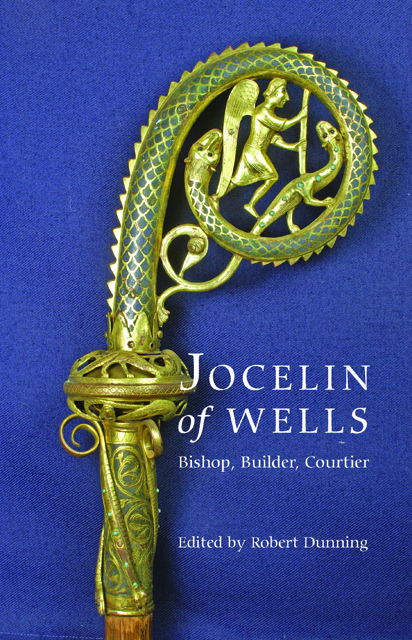4 - The bishop and his cathedral cities
Published online by Cambridge University Press: 02 March 2023
Summary
Jocelin of Wells was a local man whose family networks and rapid career rise were both firmly rooted in the Somerset diocese, and most particularly in the up-and-coming borough of Wells. His life spanned the very decades when English provincial towns were experiencing their most rapid growth and when so many were emerging onto the national map as centres of wealth and power. Across the country communities like Wells were undergoing a dramatic demographic and commercial expansion, securing their most decisive political liberties and creating new forms of civic government. Jocelin and his brother Hugh are distinctive examples of the many ways in which a bishop’s career and identity might be forged by these rapidly growing towns of post-Conquest England. They were from a local landholding family, but they took their names, as did their father, from the borough. The swift rise of father and, especially, his sons owed much to the emerging ecclesiastical and urban communities in Wells: the borough had fostered their father’s fortune and influence, while the church nurtured the brothers’ careers as episcopal and soon royal clerics. Both were promoted to sees, their titles of bishop of Bath and bishop of Lincoln drawn respectively, as was customary, from the urban seat which gave the diocese its name. Yet whereas Hugh’s civic affiliations as native son (of Wells) and bishop (of Lincoln) remained discrete and stable, Jocelin’s were intertwined and shifting, complicated both by the diverging fortunes of Wells and Bath as towns and by controversy over the location of his episcopal seat. The Somerset see had failed to settle in one city, and the situation had reached crisis point by his accession, with Bath, Wells and Glastonbury each having a claim. The ties between a bishop and city were perhaps never so complex, nor so laid bare, as during the episcopate of Jocelin of Wells, bishop of Bath.
The problem of bishop and city
Of course, the relationship of a bishop to his cathedral city was in fact mediated through a web of ties to place and community. This was particularly true for the Somerset diocese, where the bishops’ shifting, sometimes controversial, uses of Bath, Wells and Glastonbury were often more concerned with the major churches of each place than with the towns themselves.
- Type
- Chapter
- Information
- Jocelin of WellsBishop, Builder, Courtier, pp. 67 - 98Publisher: Boydell & BrewerPrint publication year: 2010
- 2
- Cited by



